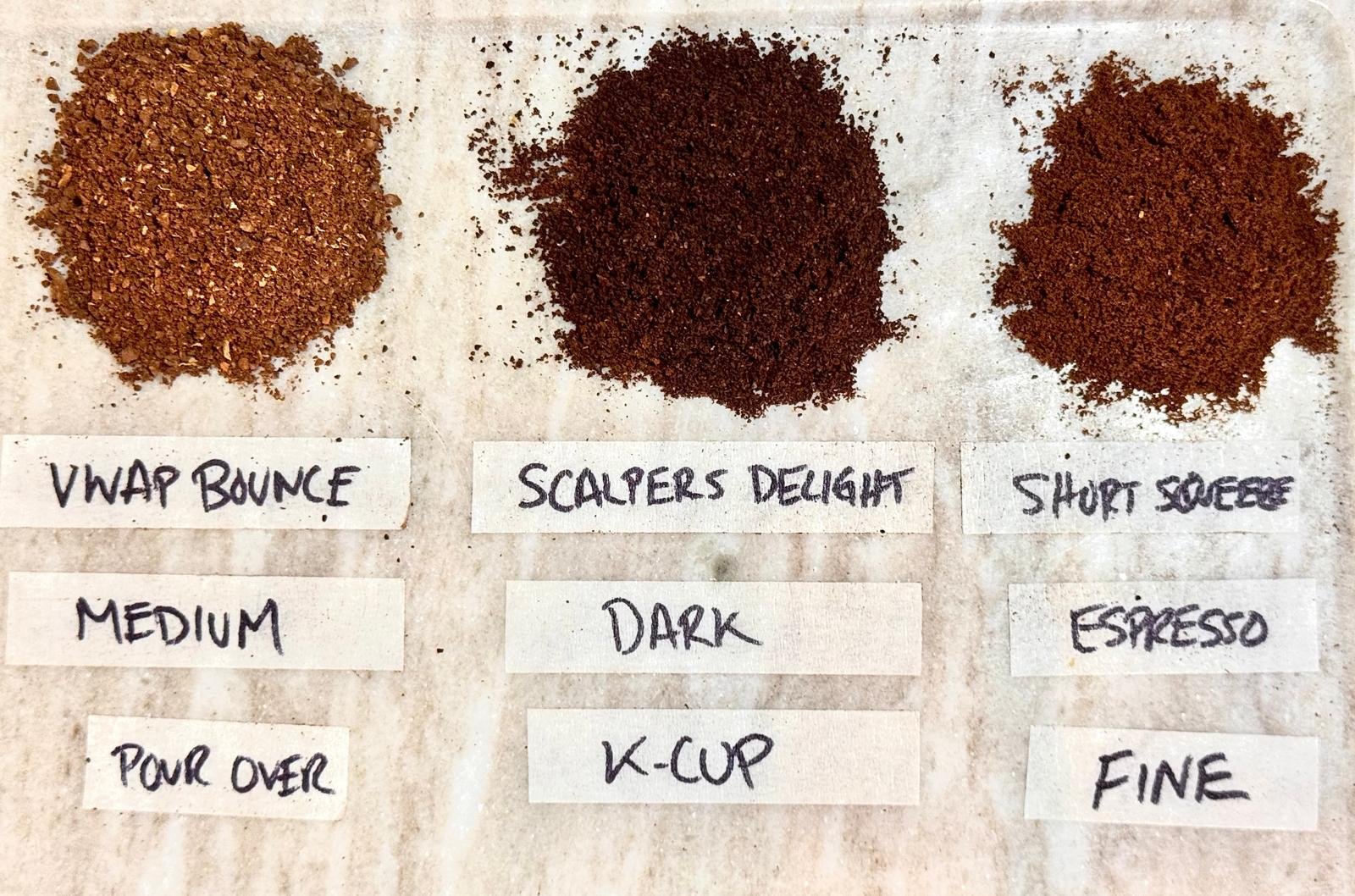Understanding Coffee Grind Sizes: The Key to Perfect Brew
Brewing the perfect cup of coffee is an art, and one of the most critical elements in this process is the grind size. The grind size affects the extraction process, which in turn influences the flavor, strength, and overall quality of your coffee. In this blog post, we will break down the optimal grind sizes for three popular brewing methods: pour-over, drip, and espresso. Let's dive into the specifics and discover how to get the best out of your coffee beans.
1. Pour Over: The Medium-Coarse Grind
Pour-over is a manual brewing method that allows for great control over the extraction process. It involves pouring hot water over coffee grounds in a filter, allowing the water to pass through the grounds and extract the flavors slowly.
Optimal Grind Size: Medium-Coarse
Texture: Similar to coarse sand.
Why: A medium-coarse grind size ensures that the water flows through the coffee at a steady rate, allowing for an even extraction. If the grind is too fine, it can cause over-extraction, resulting in a bitter taste. If too coarse, it can lead to under-extraction, making the coffee weak and sour.
Brewing Time: Typically around 3-4 minutes.
Tips for Perfect Pour-Over:
Use a gooseneck kettle for precise water pouring.
Bloom the coffee by pouring a small amount of water first and letting it sit for 30 seconds before continuing to pour in a circular motion.
Adjust the grind size slightly if the coffee tastes too bitter (grind coarser) or too sour (grind finer).
2. Drip Coffee: The Medium Grind
Drip coffee makers, also known as automatic coffee makers, are one of the most common brewing methods. They work by dripping hot water over a bed of coffee grounds, which then passes through a filter into a carafe.
Optimal Grind Size: Medium
Texture: Similar to granulated sugar.
Why: A medium grind size provides a balanced extraction rate that works well with the automated and consistent water flow in drip coffee makers. Too fine a grind can cause clogging and over-extraction, while too coarse a grind can result in under-extraction and a weak brew.
Brewing Time: Usually around 4-6 minutes.
OUR KCUPS ARE GROUND TO THIS SPECIFICATION FOR IDEAL EXTRACTION
Tips for Perfect Drip Coffee:
Use fresh, high-quality coffee beans for the best flavor.
Ensure your coffee maker is clean and free of old coffee residue, which can affect taste.
Experiment with the coffee-to-water ratio to find your preferred strength.
3. Espresso: The Fine Grind
Espresso is a concentrated coffee brewed by forcing hot water through finely-ground coffee under high pressure. It is the base for many coffee drinks like lattes, cappuccinos, and americanos.
Optimal Grind Size: Fine
Texture: Similar to table salt or slightly finer.
Why: A fine grind size is essential for espresso because it increases the surface area of the coffee, allowing for quick and intense extraction. The pressure in an espresso machine pushes water through the fine grounds rapidly, extracting rich flavors and producing a thick, crema-topped shot. If the grind is too coarse, the water will flow too quickly, resulting in a weak and under-extracted espresso. If too fine, it can cause over-extraction and bitterness.
Brewing Time: About 25-30 seconds per shot.
Tips for Perfect Espresso:
Use a high-quality burr grinder to achieve a consistent fine grind.
Tamp the coffee grounds evenly in the portafilter for uniform extraction.
Preheat your espresso machine and portafilter for optimal temperature stability.
Conclusion
Understanding and adjusting your coffee grind size is crucial to brewing a great cup of coffee, whether you're using a pour-over, drip coffee maker, or espresso machine. Each brewing method requires a specific grind size to achieve the best flavor and extraction. By fine-tuning your grind size, you can enhance your coffee experience and enjoy a perfect brew every time. Happy brewing!

